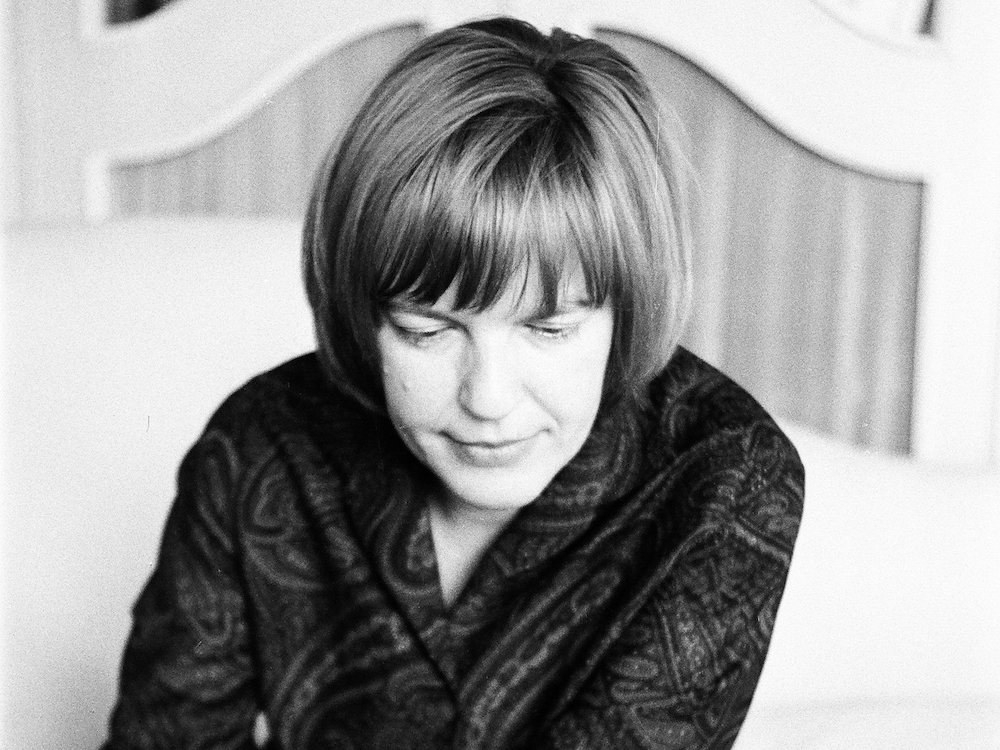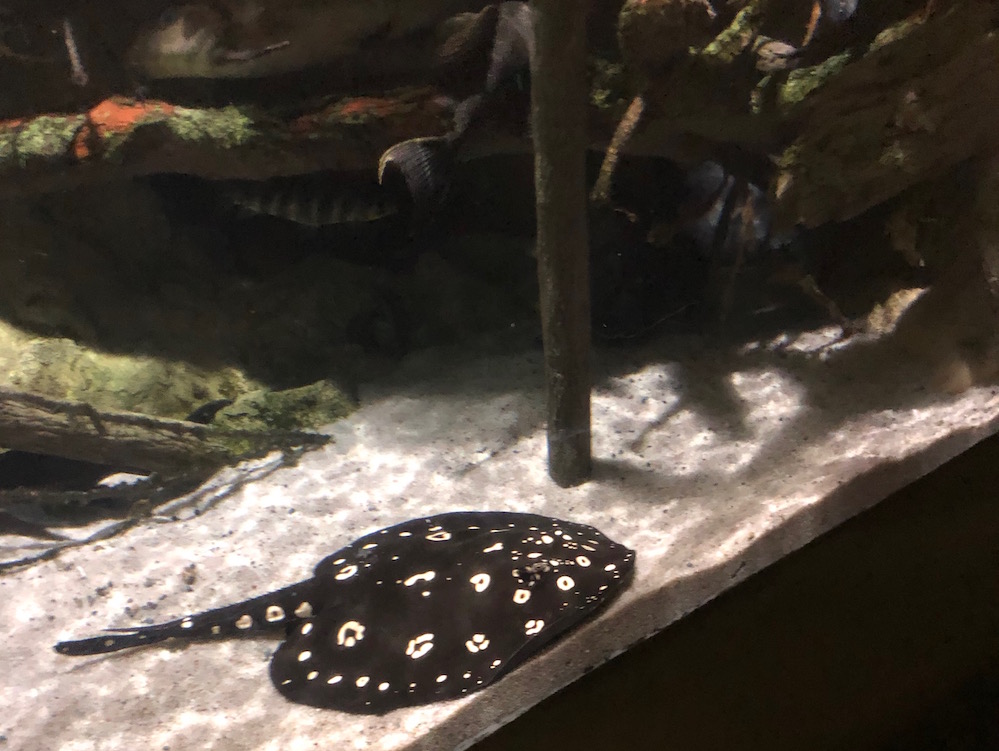I knew I was going to appreciate Ingeborg Bachmann’s 1971 cult classic Malina before I even picked it up—not only have I enjoyed reading her poetry in the past (some of which has been published in the pages of this very magazine), she’s also a major influence on one of my favorite writers, Elfriede Jelinek. And so I sat down this past weekend to finally read Malina, recently reissued by New Directions, with a great eagerness—but I didn’t realize just how profoundly it would affect me. The novel is almost impossible to describe—dense and experimental, it’s essentially a portrait of one woman’s psychological unraveling. The narrator, a nameless writer in Vienna, is torn between obsessive relationships with two different men: Ivan and the mysterious Malina, who may or may not be real. But the book is also about trauma and shame and the implicit violence that lurks in the relationships between women and men. Many pages are dedicated to a series of nightmarish visions the narrator has about her father, seemingly based on Bachmann’s hatred of her own Nazi father. Like Jelinek after her, Bachmann delineates the relationship between patriarchy and fascism to extraordinary effect, and though her vision may be bleak, it is one of profound, disquieting importance. —Rhian Sasseen
Phoebe Waller-Bridge seems to be so sincerely in her own body. I don’t just mean she’s lovely—she is—or that she’s great at physical comedy—she’s that, too—but I also mean she writes, especially her show Fleabag, from within a female body such that a troop of women, hundreds of thousands, all feel kinship with her eponymous character. At one point in the show’s second season, newly released in the U.S., our thirty-three-year-old protagonist (Waller-Bridge) speaks to a fifty-eight-year-old (Kristin Scott Thomas) about menopause. Scott Thomas’s commanding “woman in business” says menopause is wonderful: “You’re free.” For the week after I watched that scene, I thought about it ceaselessly. She means so much more than being free from the pain and discomfort of menstruation, cramps, and expensive, flowered blood-catching devices. In the few weeks since, I’ve encountered a few more accounts of what it’s like to have womanhood disappear and fade after menopause. As Sarah Manguso writes in her review of Darcey Steinke’s memoir Flash Count Diary, “In menopause, even the blondest and the most protected of women will join the rest of us in ignominy.” Manguso and Steinke write of this as a loss that’s both equalizing and troubling. But listening to Waller-Bridge talk about her work and craft, I’m not sure she would agree. Plenty has been made of Fleabag’s interaction with the fourth wall—it is so magical and makes her cracks totally new. But as Parul Sehgal notes, this technique is also a commentary on being watched, on objectification, on womanhood. At the end of the series, Fleabag walks away from the camera, and watching this, I felt my heart break for all the reasons it could: would that there were more, would that I, too, could walk away from self-consciousness, from body talk. —Julia Berick
Allen Ginsberg, the story goes, once told George Plimpton that Donald Hall “wouldn’t know a poem if it buggered him in broad daylight.” This appraisal strikes me as a little harsh—I have encountered significant evidence to the contrary in Hall’s Essays after Eighty. It’s a wonderfully sad book—his late wife Jane Kenyon is everywhere in it, even when he’s talking about unrelated matters—but it’s also insightful, informative, and frequently very, very funny. (And naturally, Hall is particularly good when writing about poetry.) When Hall died last year, I read his collection Without. It was suitably hard reading such personal poems about Kenyon’s death, but despite this, I have found myself returning to the collection often, and returning, too, to the emotions that Hall draws out of his readers in those poems. In Essays after Eighty, one discovers that his prose has the same tendency, and buried sadnesses are hauled up and out of one’s stomach without forewarning. When he ends one paragraph recounting his love of steak and potatoes, the next begins with a simple declarative: “Jane had leukemia for fifteen months.” The statement comes as a shock, and the effect is similar to the one experienced in those first moments that follow waking during a period of grief or trauma—moments of forgetful innocence before the dreaded truth returns to one’s thoughts and the world becomes dark again. In this, we share Hall’s mourning, if only in a small way. It’s a remarkable effect to achieve in prose. There are many such moments in Essays after Eighty, and each of them is difficult—but each, too, is worth it. —Robin Jones
At one point in her latest poetry collection, No Matter, Jana Prikryl imagines New York City underwater: Central Park dreams it’s a coral garden, the submerged cabs are “noble,” the barnacles on the Brooklyn Bridge are “ethical,” and the subway is pleased not to feel alone anymore being “underneath everything.” All the while, “hedonists lap the sweet water / still trapped in the pipes of Harlem walk-ups.” People are condemned; the city is faultless. Prikryl is a dedicated student of the New York School, and this radiant new collection considers the city without ever becoming parochial. These poems are each in their turn enormously satisfying and smart, with notes of Ashbery alongside healthy doses of wit. With lines resonant and solid, Prikryl presents the world around us and then slyly reveals it to be something altogether more mysterious. Upon turning the last page, I wanted immediately to return to the first and dive again into these revelations, hoping to find what else is contained within them. —Lauren Kane
Allow me to submit to your attention, by way of recommendation, this fearsome creature (pictured below), henceforth to be known as the Pancake of Death. It (the Pancake, a kind of skate, was far too fearsome, and also inaccessible, separated as it was from me by a thick pane of glass and tens of thousands of gallons of water, to allow for proper sexing) resides at the National Aquarium in Baltimore, to which I took my daughter this past weekend. The Pancake lives in the vicinity of many cousins and friends, including the Waffle of Doom (a more corner-rich ray), the Tablecloth of Destruction (a ray with a seven-foot wingspan), and, finally, the French Toast of Agony, whose excellent name was coined by my daughter. While none of these monsters is available for purchase—they are deceptively dangerous and, paradoxically, surprisingly docile—you may nonetheless cower before their awesomeness, should you wish to be humbled, by visiting the aquarium, which I highly recommend. —Craig Morgan Teicher
from The Paris Review https://ift.tt/2LITm0N



Comments
Post a Comment